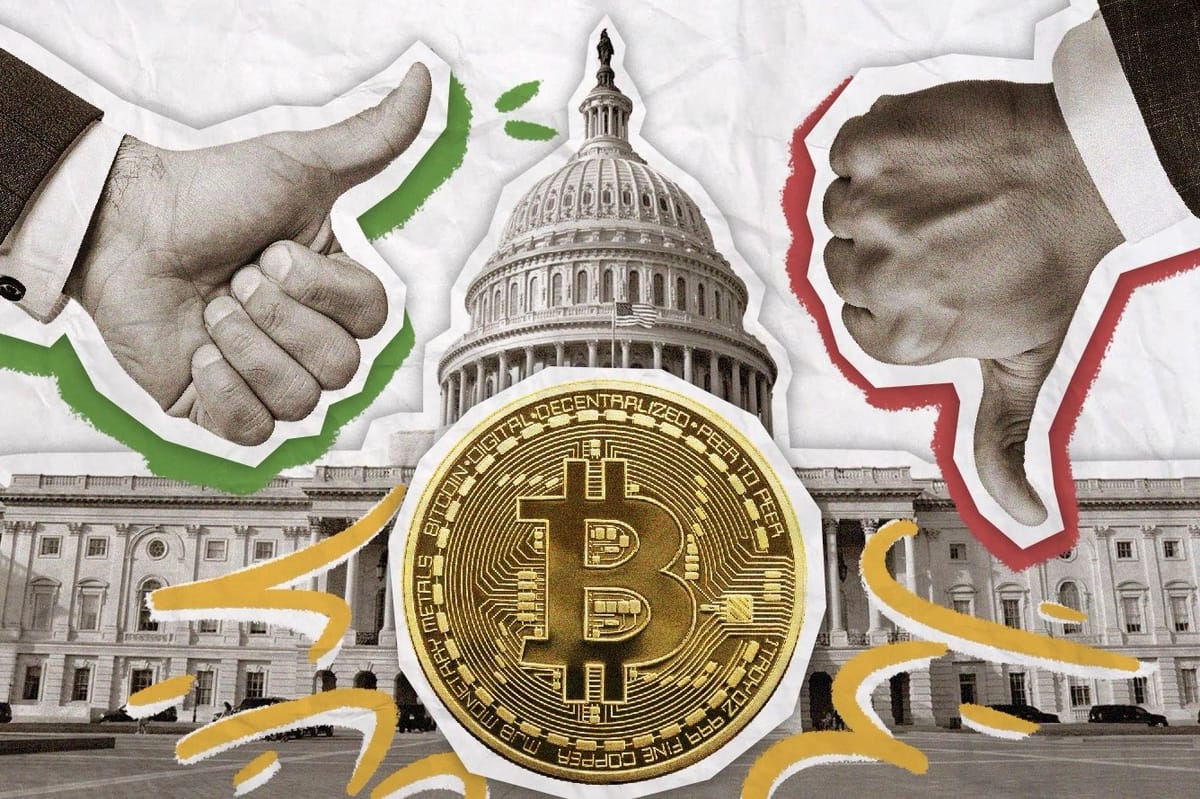
The U.S. Congress is gearing up for a consequential vote on crypto legislation, which supporters believe could end years of regulatory uncertainty and bring the industry out of a state of paralysis.
Despite November's presidential election (and Donald Trump's legal woes) looming large over the Capitol, the Financial Innovation and Technology for the 21st Century Act — known as FIT21 for short — is set to be considered by the House of Representatives next week.
If passed, it would establish clear responsibilities for the Securities and Exchange Commission, as well as the Commodity Futures Trading Commission, erasing gray areas that have caused exasperation for crypto businesses. Projects offering digital assets would also find it easier to raise capital, while exchanges would be subject to greater disclosures — and tougher rules on segregating customer funds from their own.
A floor vote is now going to be penciled in. Lawmakers in favor of FIT21 argue it's essential to future-proof America's dominance in the global financial system and encourage innovation — with others warning that the status quo is doing more harm to consumers than good. French Hill, the Republican representative for Arizona, said:
"As the collapse of FTX demonstrated, we need strong consumer protections and a functional regulatory framework to ensure the rapidly growing digital asset ecosystem is safe for investors and consumers while securing America as a leader for blockchain innovation."
Other lawmakers have argued this legislation is "desperately needed," with major economies elsewhere gaining a first-mover advantage in the push to enforce literate legislation built with the crypto sector in mind, rather than depending on decades-old rules.
While the crypto sector will rightly argue this is a move in the right direction, there are no guarantees that FIT21 will ever be enshrined into law. That's because approval in the House of Representatives would then lead to scrutiny in the Senate, whose 100 seats are almost equally divided between the Republicans and the Democrats.
Crypto has proven it can be a bipartisan issue — one that unites politicians on both parties. But vocal critics on the Hill continue to argue that the industry continues to be a "Wild West" that benefits criminals and money launderers, undermines national security, and weakens the dollar's influence.
One of them is Brad Sherman, the Democratic Congressman from California. Last year, he caused a splash by referring to Bitcoin's pseudonymous creator as "Saratoshi Nagamoto," rather than Satoshi Nakamoto.
So, what happens next?
Well, members of Congress have until Thursday to submit an amendment for consideration — paving the way for a vote later this month. Crypto Council CEO Sheila Warren said:
"While FIT21 is not a perfect bill (no bill is!), this is a critical and historic step toward establishing a federal regulatory framework for digital assets in the U.S."
